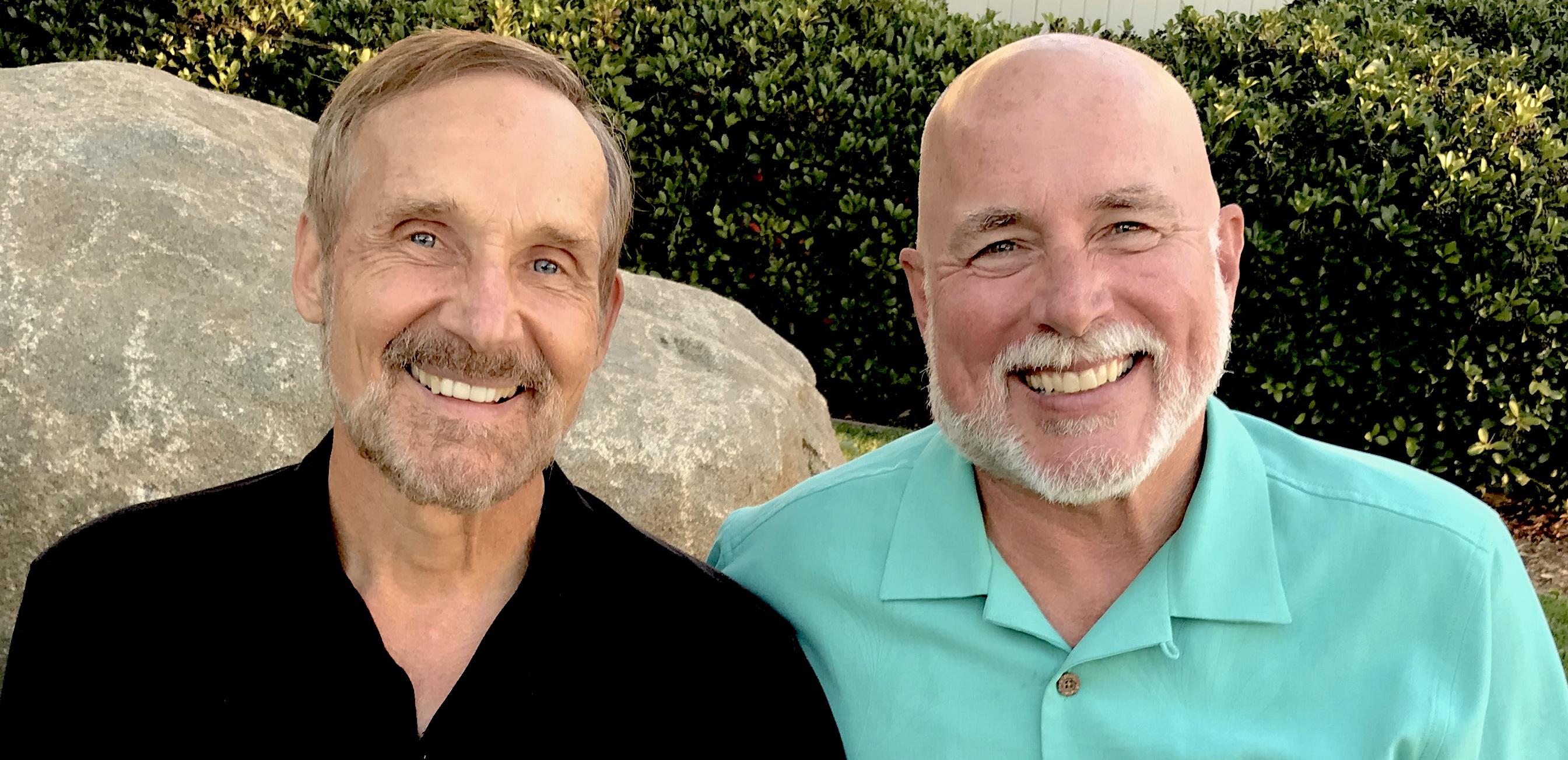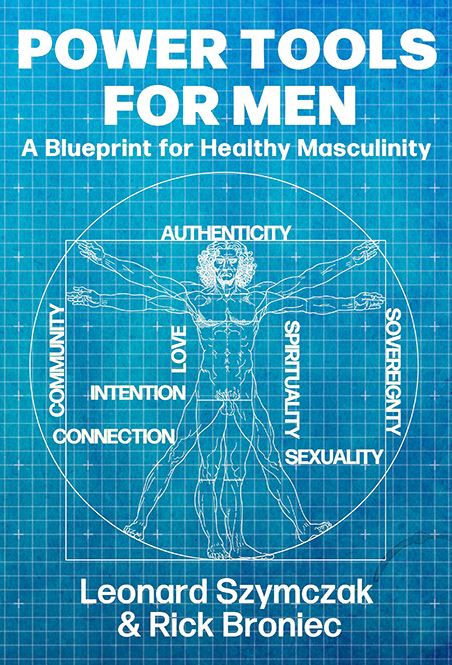Crazy Making Mixed Messages About Being a Man: What Can We do about it?

If you’re like most men, myself included, you are reeling these days. Reeling from mixed messages about what it means to be male, from rapidly changing sexual mores, from the #MeToo movement’s revelations and demands, from seeming political madness, and from masculine expectations placed on us that are far different from those we were taught in our youth. For example, men are supposed to be strong yet flexible, stoic and emotionally available, tough but gentle, respectful of women yet the initiators of connection, good providers yet available fathers and partners, staunchly hetero and accepting of all possible orientations and gender identities. We are bombarded daily with these types of mixed cultural messages. The ground beneath us males seems to be shifting quickly on virtually every front. It feels like we are caught in a cultural tsunami.
Are you finding these mixed messages and changing expectations crazy making? I know I do! I was not well prepared earlier in my life for these rapid societal changes in my identities and roles as a male, lover, partner, provider and father. Were you? It’s no wonder we men are in a crisis in the U.S. and the world. Is it a surprise, given this tsunami, that men are less resilient than women, in general? Is it a shock that men are in crisis all over the planet- and that this crisis effects women, children and other men?
Many of us suffer from being raised in the “Man Box,” as articulated by Tony Porter in his powerful 2010 TED Talk “A Call to Men.” Our parents, friends, teachers, ministers and priests, the media- in other words, our entire culture- put us strongly into this restrictive box from the very moment of our birth. They do this not because they want to hurt us, but because they truly believed that this is the best, safest, most acceptable way to acculturate their sons, grandsons, nephews and friends. It is unconscious conditioning, for the most part, that imprisons us in that box. And it is killing us!
I am not saying that these cultural shifts aren’t warranted and for the better. I also want to make clear that I do not believe that men are inherently toxic. In fact, quite the opposite on both counts. What I am saying is that we men are not getting the support we need to navigate the incredible cultural and personal changes that are upon us. I am always heartened when I hear stories that illustrate how, with support, we man can learn different behaviors.
Just this past weekend, I had the opportunity to attend a dinner honoring Zeke, an African American vet and recently homeless man, as he completed his six-month recovery program at Cammies and Canines (C&C) (a wonderful not for profit organization dedicated to helping homeless vets with PTSD and substance abuse issues heal, develop skills and tools to enter the workforce as productive citizens.) Zeke and I met on his men’s training (which I led for the ManKind Project and is part of the C&C curriculum) just a couple months before. I was immediately taken by Zeke’s huge smile and absolute dedication to his healing. His enthusiasm was infectious! I was so happy to be at his ceremony.
At Zeke’s dinner, Bob, another C&C participant, rose to speak emotionally about Zeke’s intervention on Bob’s behalf in court earlier that week. Bob, who shared that he was facing a three-year prison sentence for missing one probation appointment, was stunned to see Zeke not only in the courtroom at his hearing, but demanding to speak to the judge. Bob shared that the courtroom went silent as Zeke passionately spoke of Bob’s incredible changes over the few months he had known him. Zeke then shared some of the work Bob had accomplished to reclaim his authentic masculinity, his emotional intelligence, his sobriety and his power.
Zeke then testified to the changes in his own life which occurred by learning to live by principals taught in the Cammies and Canines Program. Zeke spoke eloquently about hope and the power of connecting to other homeless vets on a daily basis, about learning to speak his truth, about learning accountability for his life, about asking for help, about gaining emotional intelligence, about finding a spiritual path to guide him, and more.
As Bob spoke, he was moved to tears of gratitude when he shared that the judge stayed the prison sentence and sent Bob back to complete his work at Cammies and Canines and to attend his men’s training. Then Bob enveloped Zeke in a huge hug and tearfully said, “I owe you my life, brother. What you did for me goes beyond what I’ve ever experienced from a man in my life. No one has ever had my back like that. I pledge to you that I will also complete my program and help other men as you did.” The crowd there to honor Zeke exploded in applause. Both men were clearly and beautifully out of the Man Box.
That box has recently been further articulated by the August, 2018 American Psychological Association’sAPA Guidelines for the Psychological Practice for Boys and Men.Some common messages that put and keep us men in the box, according to both Porter and the APA are: men don’t cry or express emotions openly, men don’t show weakness, men demonstrate power and control- especially over women, men are aggressive and dominant, men are heterosexual and not gay or feminine, men are isolated, and men solve problems alone without asking for help. These very behaviors, labeled by the APA as “Traditional Masculine Ideology” has been declared harmful to men. Hear that again: the APA has declared that the compendium of behaviors characterized as the “Man Box” is harmful to men.
Yikes! Of course, we’re reeling. What we think we know about being a man is being challenged on most every front. What many of us have valued for much of our lives as being masculine is now being called harmful, even toxic, by women, the APA, and our society. Ouch!
What are we men working to become more aware and healthier supposed to do? How do we get out of that ubiquitous and restrictive “Man Box” and still maintain our sense of masculinity? How do we identify and emulate the positive qualities of “Traditional Masculine Ideology” while learning alternatives to its more negative aspects? I believe these are questions that many of us are struggling with. I know I am and I have been searching for answers for 30 years. I’m tired of these crazy making messages!
It’s time to evolve our masculine identity to expand choices for men to be more fully human. To that end, my friend and co-author, Leonard Szymczak, and I have come up with a road map that has led us, and many of the thousands of men we have worked with, to clarity about what constitutes healthy masculinity. Called the CLASSICS Model, it is not an easy path to follow, but it works. Zeke and Bob are examples of men living by the CLASSICS Model which is changing their lives.
Here’s what Leonard and I recommend: First, we advocate for retaining qualities of the traditional masculine ideology that still serve us. These qualities include loyalty to friends and family, strength, attention to serving the family and community, honor, truth, courage, and wisdom. These are qualities that have withstood the test of time and lead men to a healthier, more fully human existence. As pointed out earlier, there are also qualities of the “Man Box” masculinity model that decidedly do not serve most men today.
Then we advocate for consciously replacing these old behaviors with a newer paradigm of eight dimensions we call the CLASSICS Model. CLASSICS is an acronym which stands for:
C= Connection
L= Love
A= Authenticity
S= Spirituality
S= Sexuality
I= Intention
C= Community
S= Sovereignty
These principles lay the foundation for men to rewire their masculine selves, shifting from the more toxic traditional masculine ideology to the new CLASSICS roadmap, as shown in the comparison below.
|
Hurtful Traditional Masculine Ideology (Man Box) |
CLASSICS Model (New Roadmap) |
|
Shutting down emotions and disconnecting from relationships |
Connection: valuing emotions and relationships |
|
Avoiding real intimacy |
Love: sharing with an open heart |
|
Encouraging toughness and invulnerability |
Authenticity: relating vulnerably with accountability and integrity |
|
Being performance-driven and materialistic |
Spirituality: connecting within and with others |
|
Using sex as an act of domination |
Sexuality: accessing pleasure responsibly |
|
Living in self-serving ways |
Intention: creating a mission of service |
|
Overvaluing self-reliance and self-sufficiency |
Community: building a circle of men |
|
Embracing power over others and winning at all costs |
Sovereignty: leading with your inner king |
We have had the pleasure of working with thousands of men in eleven countries on five continents using this model as a road map for healing. We have done this in weekend trainings, for organizations and in one on one therapy and coaching sessions. We have witnessed many men reclaiming their authentic, powerful, grounded masculine selves by embracing this model and practicing these eight dimensions. Men like Zeke and Bob. In our newest book, Wake Up, Grow Up and Show Up: Calling Men into the 21stCentury(Soon to be published), we share many powerful stories of masculine transformation that occurs when men embrace these behaviors.
I am very grateful for the opportunity to share these stories of change because I believe that our road map is one useful tool for transforming the hurtful aspects of the Man Box into a masculinity that transcends old messages and embraces healthy, conscious growth and awareness that we men are seeking and the world so desperately needs. There is hope for those of us experiencing the craziness of mixed messages about being a man. There’s a way out of the “Man Box.” I welcome you to this exciting and enlightening path.
For many more inspiring stories of men’s transformation, and a deeper explanation of the power of the CLASSICS Model, please go to our Facebook page, https://www.facebook.com/wakeupgrowupandshowup/.
.jpg)


